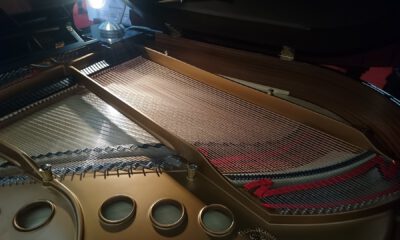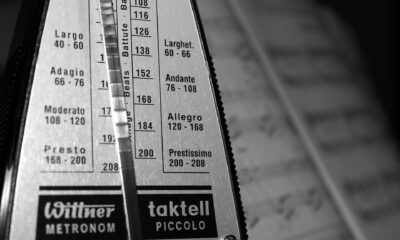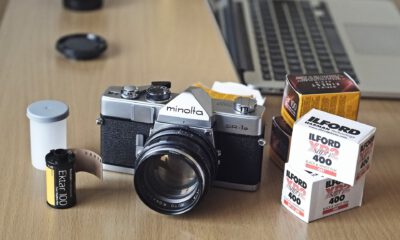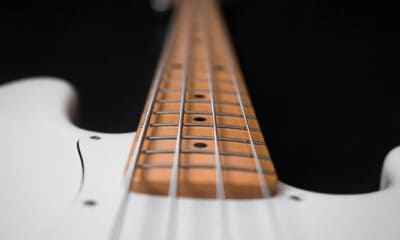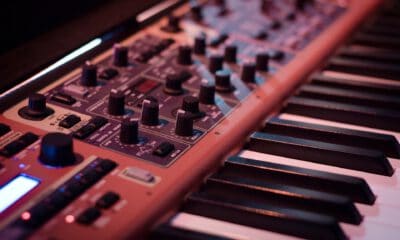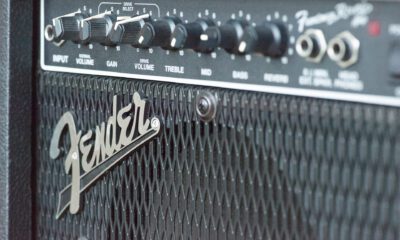Guitar
Why Do Bass Amps Need More Wattage? (Simply explained)
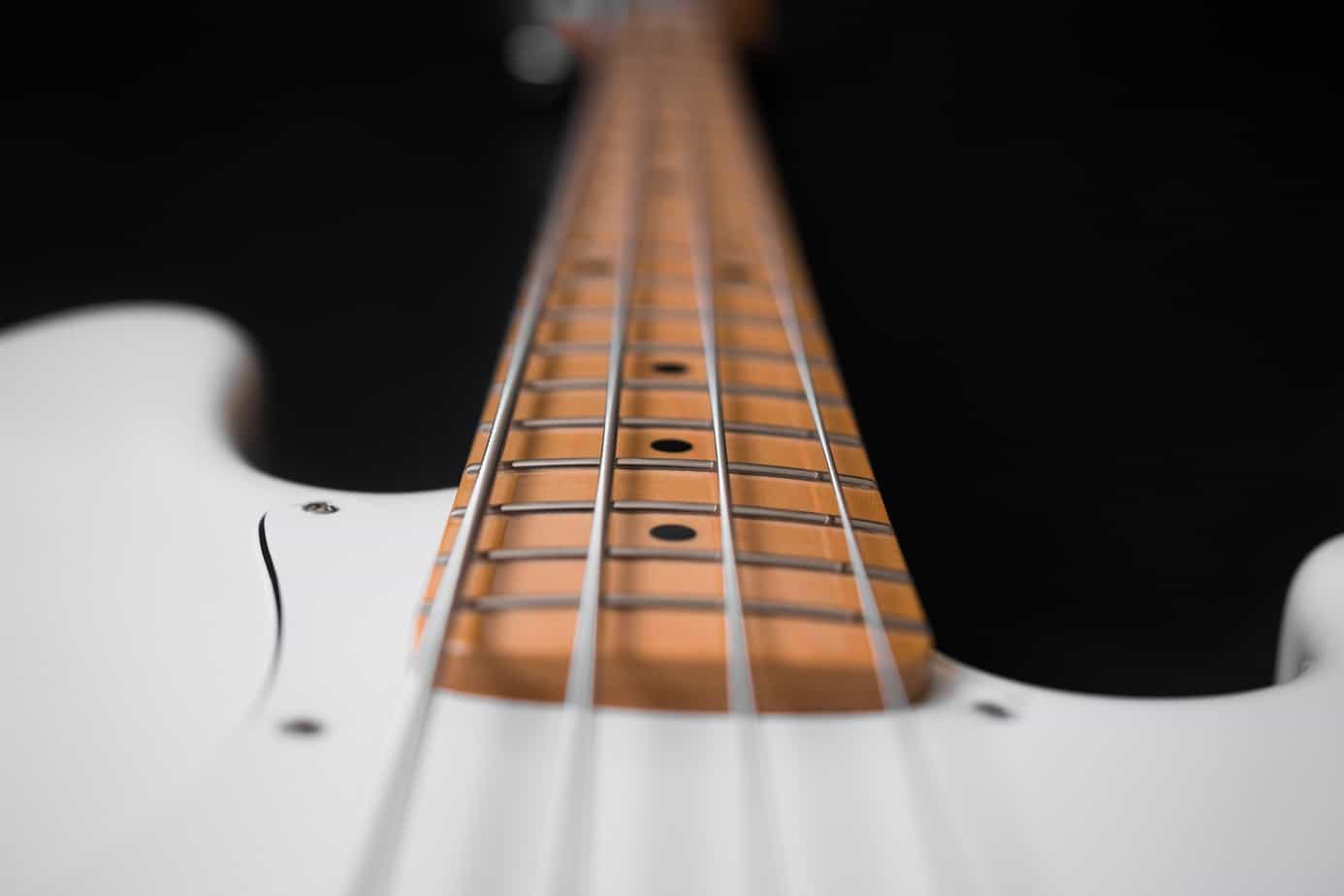
If you look at the wattages of guitar amps and bass amps, you’ll quickly notice that bass amps have much more power.
Even compared to vocal amps, bass amps have significantly more power. But why is that?
Why do bass amplifiers have more power?
Bass amplifiers are designed for low frequencies. To reproduce these frequencies, the speaker in the amplifier needs to move more because the sound waves are longer. That’s why the amplifier needs more power.
Of course, that’s just the short answer. Beyond that, if you want to know how many watts your bass amp should have for certain tasks, how it compares to a guitar amp, and generally why your bass amp needs more power, you’ve come to the right place.
How much power does an amp need?
Of course, that depends on whether you’re using a guitar amp, or a bass amp.
Of course, the size and the area of application also play a role. An amplifier for playing at home, of course, needs nowhere near as much power as an amplifier that is used on stages at gigs.
Most normal guitar amplifiers have about 10W-100W.
Of course, there are practice amps that have even less power, for example, only 1W. At the same time, there are of course much more powerful guitar amplifiers, but they are used only on large stages.
But what about bass amplifiers?
Most bass amplifiers have 80-400W.
As you can see, bass amps have much more power. (Especially when you consider that a 100 watt bass amp really doesn’t have much sound volume).
Again, the big amps that are used on stages, for example, have even more power. Even 500W-1000W are not uncommon there.
Watts and frequencies
As briefly explained above, bass amplifiers have more power for the reason that they play lower frequency ranges.
Now let’s take a detailed look at how and why there is a connection there. But first, we need to briefly address a misconception that is very common:
Important: An amplifier with twice as many watts is not twice as loud. The wattage merely indicates the power: for example, a 100W guitar amp is louder than a 100W bass amp.
Again, this has something to do with the different frequency ranges.
To understand this, we need to understand how amplifiers work:
An amplifier has a speaker built into it that generates sound waves. The sound waves are generated by the vibrations of the speaker.
(If you’ve ever really turned up the bass on a speaker, you’ll surely have noticed that everything starts to vibrate. It’s similar with amplifiers.)
Now the question is: Why do low frequency ranges need more power than high ones?
The answer is actually quite simple:
Sound waves vary in length. The lower a tone is, the longer the sound wave is. The higher a tone is, the shorter it is.
Since your amplifier generates the vibrations with the help of the speaker, it has to move faster for high tones, but much less. For low tones, the speaker vibration is slower, but much greater.
The higher a frequency, the less force is needed; the lower the frequency, the more force is needed.
That’s why a speaker that plays high frequencies needs much less power than, for example, a subwoofer, or a bass amplifier.
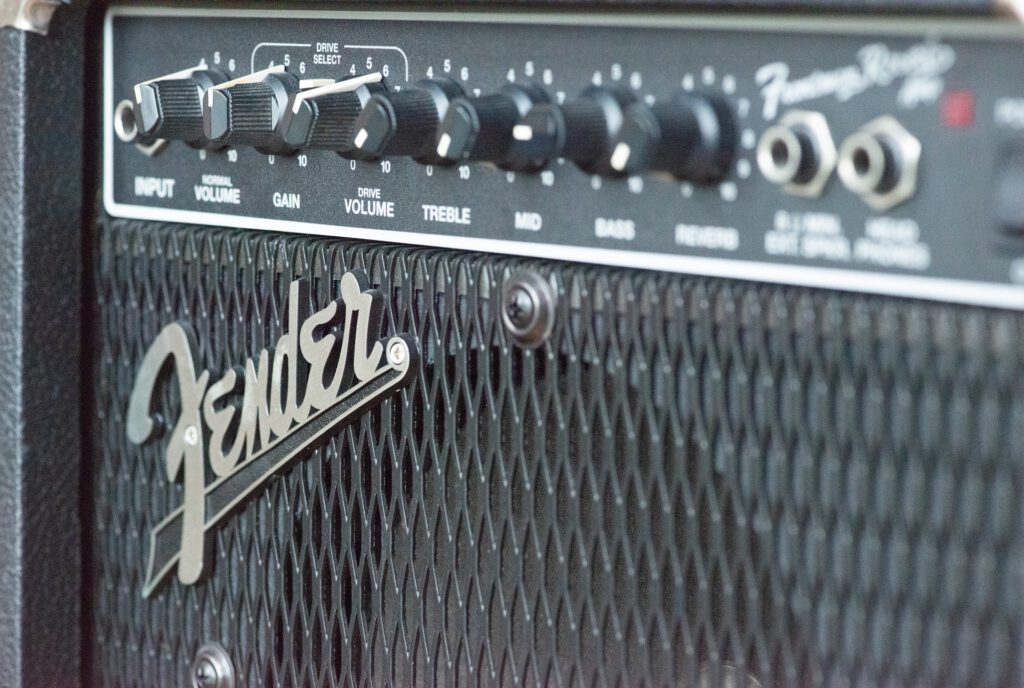
Which frequencies do I play?
Now, of course, it’s interesting what frequency range you’re in.
That depends, of course, on whether you’re singing, playing keyboard, guitar, or bass.
The average singing voice is located in frequency ranges from 80 Hz to 16 kHz (depending on tone, voice length, gender).
When playing an electric guitar, you are located in a frequency range from about 82 Hz to 1200 Hz.
An electric bass, on the other hand, has a frequency range of only 40 Hz to 1000 Hz.
As you can see, there are huge differences. The lowest frequency, both for the electric guitar and for your own voice, are each more than twice as high as for the electric bass.
For this reason, the sound waves of the electric bass are much longer than those of the electric guitar and your own voice.
Especially the higher notes of your own voice and the electric guitar, which do not exist at all on the bass, require much less power than the low notes on the bass.
How many watts do I need?
As with any question, the simplest answer is: it depends.
That’s why I’ve divided the answer into 3 different sections for you:
1: If you just want to practice on your own.
If you only want to use your bass amp at home and practice, then almost any wattage will do. Amplifiers in the 100W-200W range are recommended.
2: If you want to play at smaller concerts.
At concerts it is always louder. For this reason you need a more powerful amplifier. Anything above 200W is recommended. However, if you want to use your amp only for small and medium gigs, an amp with 200W-400W should be enough for you.
3: If you want to play at big concerts.
Big concerts are always loud. Therefore, of course, you must have a very good, loud amplifier. To perform well at big concerts, you should have an amplifier with at least 500W. Of course, there is no limit to the amount of power you can have.
If you want to know more about the wattage of your amplifier, you can watch the following video:
Why do bass amplifiers need more power (other factors)?
Besides the longer sound waves in the low frequency range, there are other factors why bass amps need more power:
One, for example, is that most bass amps divide the individual sound ranges into different sections.
While guitar amps usually consist of one sound sector, bass amps often have them divided.
Example: many bass amps have a power section designed for particularly low tones and one designed for particularly high tones.
Again, it is usually the case that the power section for the low tones accounts for a majority of the power.
How is the power related to the volume?
As we have already clarified, there is no linear relationship between power and volume.
However, as a rule of thumb, you can calculate that your amplifier can then get twice as loud if it has 8-10 times the power.
Example: If your amplifier has 1W and produces a certain volume, you need about 10W to double the volume. If you want to double the volume again, you need 80-100W. After that you need about 700-1000W to double the volume again.
I think you understand the principle behind it.
But also here there is a small restriction between different types of amplifiers:
And the difference here is between transistor and tube amplifiers:
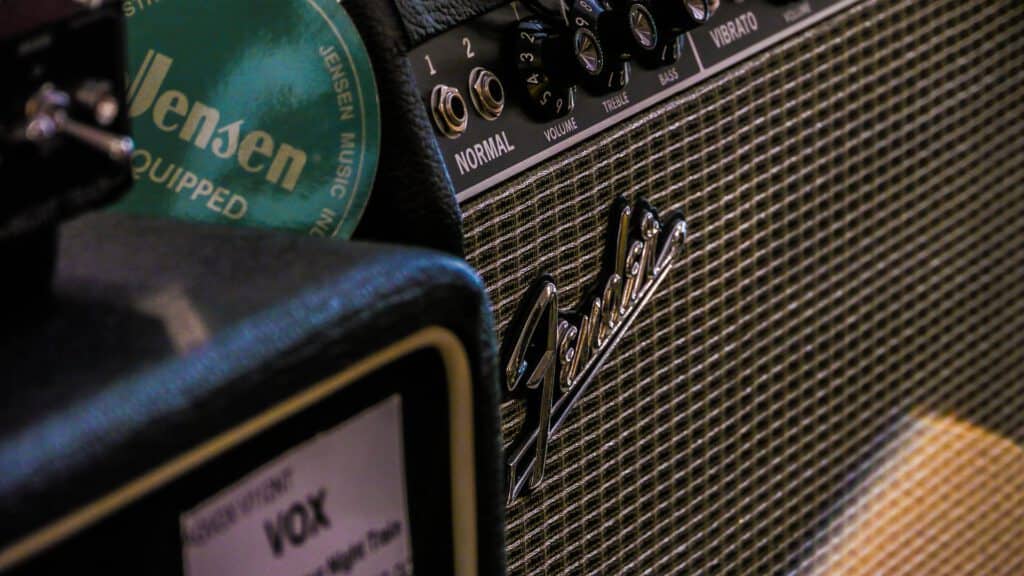
The difference between transistor and tube amplifiers:
There are also differences between solid-state (transistor) and tube amplifiers.
If you look at the sound of the two, you will notice that tube amplifiers usually have more character than solid-state amplifiers.
That’s why many guitarists still use them today. (Although the technology has evolved for decades only in the details).
There are also differences in dynamics between the two types of amplifiers: tube amps are even more sensitive and react to any change in playing style, volume and much more.
If you want to look for a tube amp, you can click this link to search on Amazon.
At the same time, solid-state amps are also variable and adapt to your playing, but they are nowhere near as sensitive as tube amps.
If you want to look for a solid-state amp, you can click this link to search on Amazon.
But what about when it comes to power?
Tube amplifiers require much less power than solid-state amplifiers. Again, watts and power do not equal volume.
If you have a chance to test a solid-state amp and a tube amp side by side, you’ll notice that very quickly, too:
A tube amp with one-fifth to one-tenth the power is often louder than a solid-state amp that has 5-10 times the power.
If you want to learn even more about the differences, you can watch this video:
Does my bass amp have effects?
You also need power for effects.
That’s why it’s reasonable to assume that bass amps have more built-in effects than guitar amps.
While guitar amps only amplify the sound, most bass amps add a sound character.
Of course, your amp (in the vast majority of cases) has other effects.
The most common effects are signal processors in the form of EQs and compressor effects.
Conclusion and summary
In this article, we’ve looked at the specifics of bass amps versus guitar amps.
In particular, we have clarified the question of why bass amps require much more power than guitar amps, for example.
As you now know, there are several different reasons for this, but the most important one lies in the physics behind sound waves.
I now wish you continued fun and success with your electric bass and your bass amp.

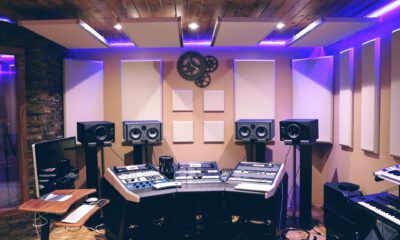
 Home Recording2 years ago
Home Recording2 years agoCan You Use Normal Speakers As Studio Monitors? The Simple Answer
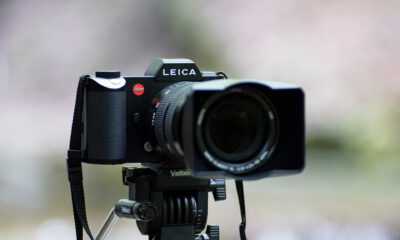
 Photography2 years ago
Photography2 years agoIs A Leica Worth It? (What you should know)
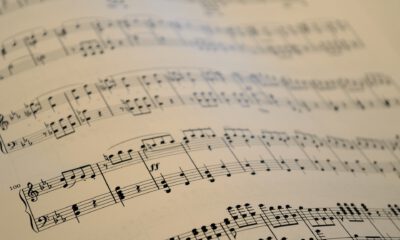
 Music Production2 years ago
Music Production2 years agoCan Piano Sheet Music Be Used For Other Instruments?
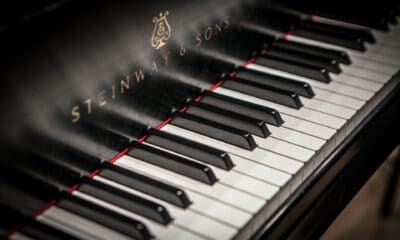
 Music Production2 years ago
Music Production2 years agoAre My Piano Keys Made Of Ivory? (How To Recognize It)

